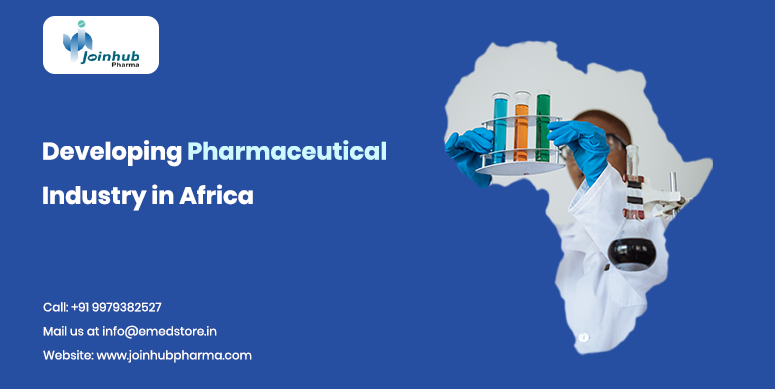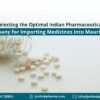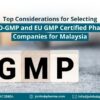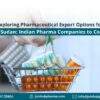The African pharmaceutical market is developing at a rapid speed due to changing economic profiles, growing investment in healthcare, rapid urbanization, and increase in chronic lifestyle diseases. In 2013, the pharmaceutical industry’s value touched $20.8 billion. Multinational pharma companies got a good chance to boost and expand their business. Also, patients gained access to world-class medicines that were not available earlier.
The tropical climate is responsible for various infectious diseases:
The continent encounters infectious diseases like tuberculosis, malaria, AIDs, polio, cholera, yellow fever, meningitis, pandemic influenza, hepatitis, measles, tetanus, etc. There is a visible shift towards non-communicable diseases due to the growing adoption of western lifestyle in Africa, Nigeria, etc.
The pharmaceutical companies in Nigeria, Africa, etc. are manufacturing and importing generic and prescription drugs from other countries. Certain lifestyle diseases including cancer, cardiovascular ailments, diabetes, etc. are growing at a high rate. According to the prediction of the World Health Organization, the NCDs’ proportional contribution to the healthcare burden in these nations will grow by 21% by 2030.
The transitional phase of Africa and Nigeria:
Currently, the nations are in a transitional phase. They are looking forward and working hard towards adherence to certain global standards like the WHO pre-qualification to manufacture. Local production by the top 20 pharmaceutical companies in Nigeria, Africa, etc. is considered as the main strategy for persistent access to high-quality medicines for the long term.
Again, the regulatory environment for medicine production in East Africa is rapidly growing due to the regional harmonization. Experts are expecting expansion of healthcare coverage to a greater number of people through the initiatives of National Health Insurance and through memberships with providers of Private Health Insurance.
The rising popularity of generic medicines:
Generic drugs are getting more market share in Nigeria, South Africa, Kenya, Algeria, Egypt, and Morocco. Between the year 2010 and 2014, the share of generic drugs’ market raised from 22 to 25 percent in Algeria. In Morocco, the rise was from 23 to 28 percent. The pharmaceutical exporters in Africa are finding various factors.
- The pharmacists and physicians are getting habituated to prescription drugs.
- There is an expansion of national insurance programs.
- Many people are gaining access to modern healthcare.
- The demands for generic drugs are growing instead of costly branded medicines.
- Governments are displaying strong support for generic medicines. In South Africa, pharmacists are informing private patients about these medicines while they are buying prescription drugs. Again, Nigeria is also following similar law.
The business environment is changing:
Governments have taken various initiatives like introducing price controls, import restrictions to give way to the manufacturing of domestic drugs. Country-specific labelling is required for reduction of parallel imports and counterfeiting. Again, the government has initiated stricter laws on import, retail margins and wholesale.
Pharma manufacture in Nigeria, Africa and other locations is on a steady rise. Several joint ventures, partnerships, merging, strategic alliances and private-equity deals are taking place and expanding the present market.
Presently, South Africa is the most superior region for products of medicines in Sub-Saharan Africa. The local market of pharmaceutical manufacturing in East and West Africa are likely to develop. Majority of Africa-based pharmaceutical firms are producing medicines having simple mixtures and formulations.
Technological development is crucial for the development of the manufacturing sector in Nigeria and Africa mainly due to the change in disease burden. Nowadays, the nations are adopting complex formulations aligning with treatment guidelines related to AIDS, HIV, and NCDs.
Grounds of the pharmaceutical industry in African countries:
The pharmaceutical markets in African countries are growing in all sectors. In the recent past till last year, there was a steady growth of prescription drugs, generic medicines, over the counter medicines and lots of medical devices.
The driving grounds are:
Speedy urbanization: The population of Africa is currently passing through a tremendous shift. It is estimated that by the year 2025, around two-fifth of the total economic growth will arrive from 30 cities that consist of around 2 million people. Again, 22 of these cities can have excess GDP of around $20 billion. These cities are likely to enjoy better healthcare and logistics infrastructure. The urban people have more buying capabilities and they can adopt modern best-in-class medicines.
The infrastructure of healthcare: Africa has added 70,000 hospital beds, 16,000 good doctors and 60,000 trained nurses between 2005 and 2012. The provision of healthcare is becoming more methodical via various initiatives. Moreover, the origination of avant-garde delivery models is boosting the capacity.
African pharma market has a better future:
Africa is not a single unified market. It is consisting of 54 distinct markets embracing wide gaps between countries in respect to a growth trajectory, market size, legal structure, macroeconomic landscape, and political complexities. The number of households interested in consuming world-class medicines is increasing. Hence, the pharmaceutical companies in Nigeria and pharmaceutical exporters in Africa are focusing on providing more quality medicines to all.
Make a Call: +91 9979382527
Mail us at [email protected]










